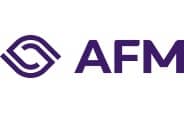
Action needed to stop minors from using Buy Now, Pay Later
In 2023, almost 600,000 iDEAL transactions that can be linked to providers of Buy Now, Pay Later (BNPL) were made through accounts in a minor’s name. This is the finding of the Dutch Authority for the Financial Markets following an investigation into this matter. Minors constitute an extremely vulnerable target group to whom credit may not generally be provided. We call on the BNPL sector and the legislator to work together in quickly adopting an effective approach aimed at halting the use of BNPL by minors.
In short
• 600,000 possible BNPL transactions by minors
• Consumers under the age of 35 are more likely to miss payment deadlines
• Behavioural experiment: payment reminders sent via SMS are effective
• For every purchase of €100, around €40 is returned
• BNPL will be subject to the AFM’s supervision in 2026
600,000 possible BNPL transactions by minors
The analysis conducted by the AFM shows that almost 600,000 iDEAL transactions that can be linked to BNPL providers were made through accounts in a minor’s name in 2023. The average transaction amount was about €50. The transactions concern users (mainly) aged between 13 and 17 who are likely to circumvent the age checks carried out by BNPL providers. There is a real risk that these transactions involve unauthorised BNPL use. In principle, it is not allowed to grant (BNPL) credit to minors. The industry’s own Code of Conduct states that BNPL providers require their customers to be at least 18 years old. The AFM calls on the BNPL sector and the legislator to work together in quickly adopting an approach aimed at effectively halting the use of BNPL by minors.Consumers under the age of 35 are more likely to miss payment deadlines
The AFM Market Update shows that the BNPL market continues to grow. In 2022, BNPL providers processed roughly 45 million transactions totalling a value of €4.8 billion. The average number of transactions is growing fastest amongst users aged between 18 and 24, increasing by 32%. Relative to other age groups, consumers under the age of 35 most often face late payment fees and are handed over to a debt collection agency most often. The costs associated with late payment can be substantial.Behavioural experiment: payment reminders sent via SMS are effective
We encourage BNPL providers to ensure that more customers pay on time and that fewer customers are charged late payment fees. BNPL provider Riverty and the AFM jointly examined the effect of a payment reminder via SMS on the behaviour of more than 34,000 customers. <LINK> This relatively simple intervention proved effective. The number of customers who paid late and were charged late payment fees, was reduced by one in five.Such interventions enable BNPL providers to reduce the number of customers who are charged late payment fees.
For every purchase of €100, around €40 is returned
The analysis conducted by the AFM also shows that for every €100 paid by customers using BNPL, around €40 is returned. With BNPL, the purchase amount is charged only if the customer chooses to keep certain purchases and not return them. In addition, there are often no charges for delivery or returns. These factors can contribute to customers ordering and returning more than needed. We encourage the BNPL sector to work with online shops and customers to prioritise sustainability in transactions.BNPL subject to the AFM’s supervision in 2026
The recast European Consumer Credit Directive was adopted in October 2023. As a result of this regulation, the BNPL sector will become subject to the supervision of the AFM by November 2026. The sector has already taken steps to improve the quality of its services, such as adopting a Code of Conduct in October 2023. Nevertheless, BNPL providers will need to make further improvements ahead of the introduction of the new legislation.Contact for this article

Would you like to receive the latest news from AFM?
Subscribe to our newsletter, we will keep you up-to-date.